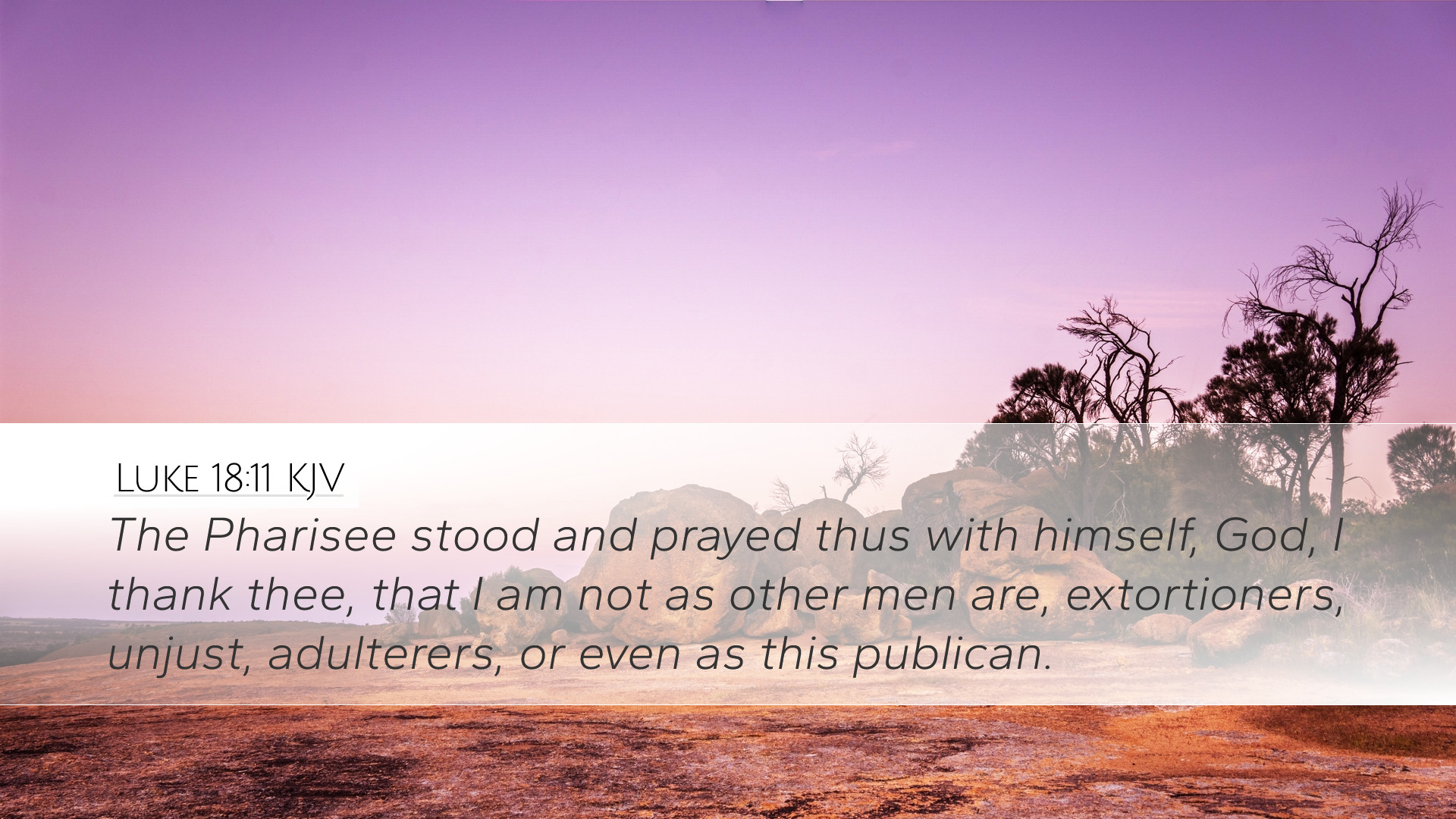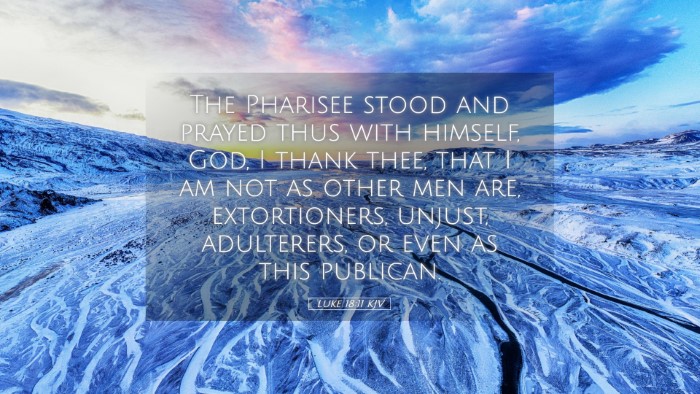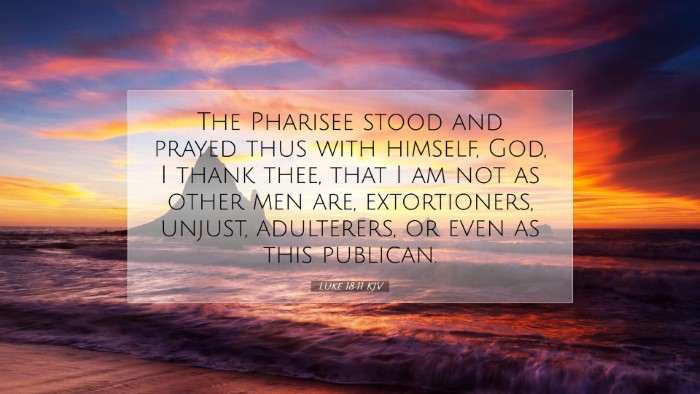Commentary on Luke 18:11
Luke 18:11 states, "The Pharisee stood and prayed thus with himself, God, I thank thee, that I am not as other men are, extortioners, unjust, adulterers, or even as this publican." This verse serves as a focal point for understanding the psychological and spiritual state of the Pharisee in the context of prayer and self-righteousness.
Contextual Overview
The preceding and following passages provide crucial insight into the parable of the Pharisee and the tax collector, emphasizing the contrasts between self-righteousness and humility. The narrative establishes a dichotomy between those who see themselves as righteous and those who recognize their need for God's mercy.
Analysis of the Pharisee's Attitude
-
Posture in Prayer:
Matthew Henry observes that the Pharisee “stood and prayed thus with himself,” suggesting a posture of self-exaltation rather than genuine worship. His position indicates not a submission to God but rather an assertion of his own righteousness.
-
Self-Reflection vs. Reflection on God:
Albert Barnes notes that the Pharisee's prayer is noted for its excessive focus on self, highlighting a fundamental flaw in his approach. Rather than acknowledging God’s greatness and mercy, he lists his own virtues, revealing an inward focus that undermines true prayer.
-
Comparison with Others:
The phrase “I am not as other men are” exemplifies the arrogance present in the Pharisee’s mind. Adam Clarke comments on this comparison, indicating that it serves as a tactic to build his own self-image at the expense of others, particularly the publican mentioned in the verse.
Theological Implications
This verse prompts deep theological reflection on the nature of justification and the human tendency to self-righteousness. The Pharisee embodies the attitude of relying on personal achievements, which starkly opposes the biblical principle of justification by faith.
-
Understanding Justification:
Classic Reformed theology asserts that justification before God is not based on works but on faith in Christ alone. The Pharisee’s prayer exemplifies a profound misunderstanding of this doctrine as he seeks to justify himself through his actions.
-
The Role of Humility:
The stark contrast between the Pharisee and the tax collector underlines a critical theological premise: humility is foundational to a right relationship with God. As Matthew Henry points out, those who do not recognize their sinfulness place themselves at risk of spiritual blindness.
Application for Believers
This verse serves as a warning against religious pride and self-deception. Believers are reminded to assess their own spiritual condition honestly and seek God’s grace.
-
Self-Examination:
Pastors and church leaders should encourage congregations to engage in regular self-examination. This includes acknowledging personal shortcomings in a manner that leads to repentance rather than self-condemnation.
-
Emphasizing Grace:
The focus should not only be on avoiding the pitfalls of self-righteousness but also on actively recognizing and embracing the grace that God offers to all who humbly seek Him.
Conclusion
Luke 18:11 encapsulates the essence of the struggle with pride that plagues humanity. As Matthew Henry articulates, it reminds us to approach God not with our own merits but in recognition of His mercy. This passage ultimately calls believers to embody humility, to appreciate the depth of divine grace, and to resist the innate human tendency to compare themselves with others.


